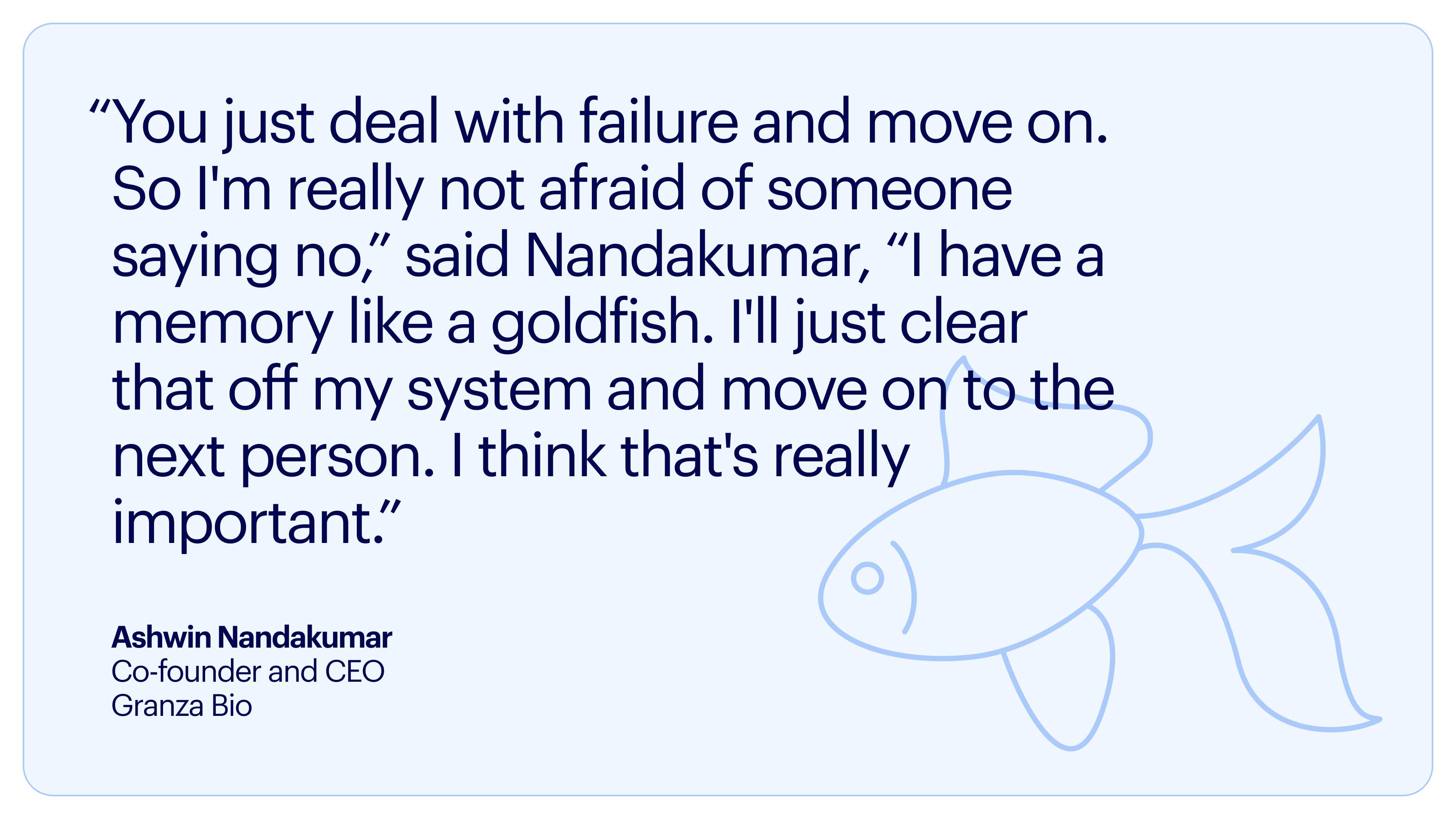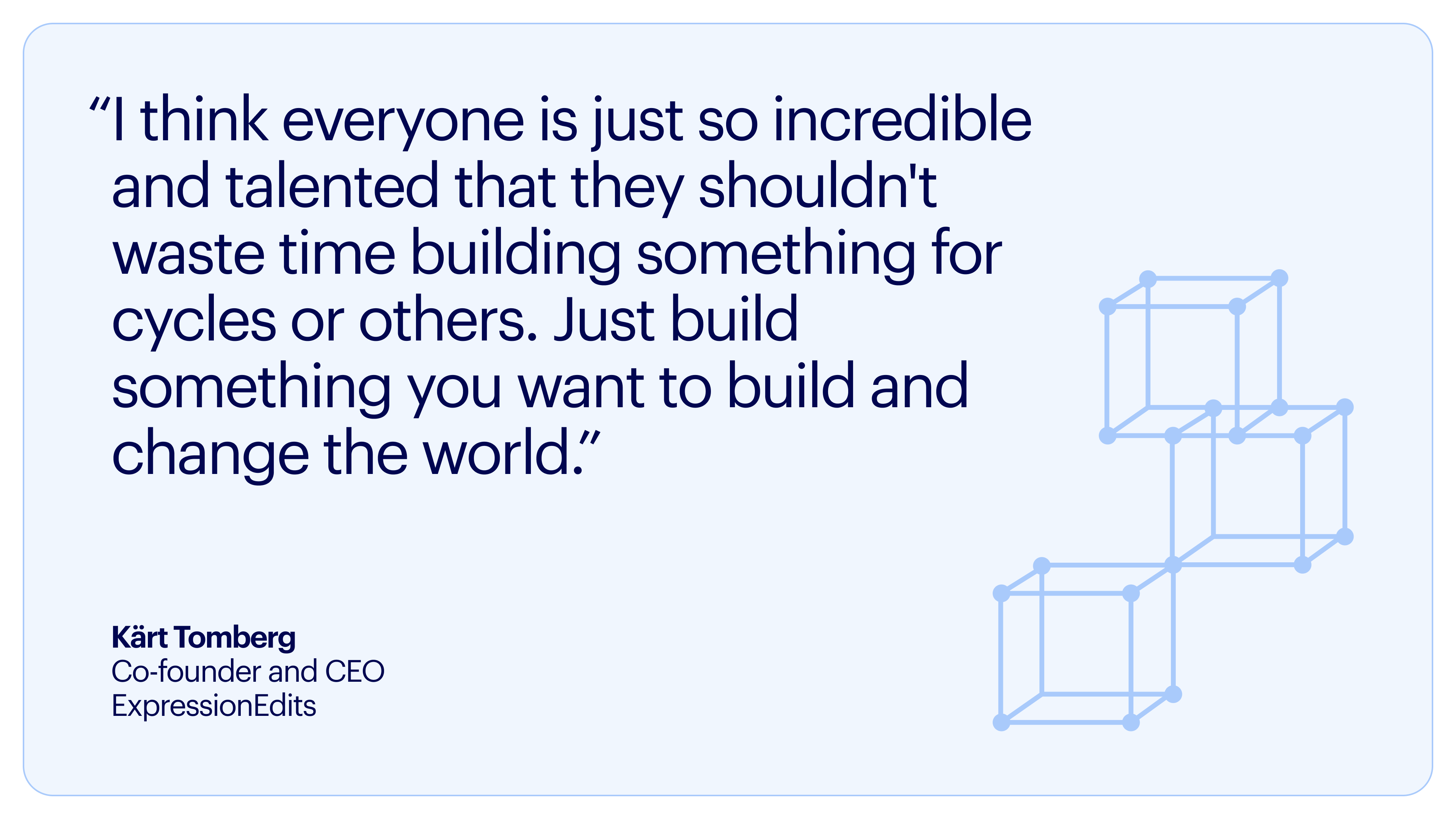“Have the memory of a goldfish” and 5 other fundraising tips for biotech startup founders

The bar is higher than ever in biotech fundraising. After a challenging few years, investors are cautiously returning, focusing on early stage startups with strong science, clear commercial potential, and teams that can execute with speed and precision. But this era of fundraising is different. The next wave of tech- and AI-powered biotechs is reshaping how VCs evaluate companies, pushing them to think critically about data, platforms, and talent. Despite this, the startups that are successfully raising initial funding stand out as exceptional, spotlighting breakthrough innovation in the face of increased competition and discerning investors.
At this year’s Build your Bench, Europe event, hosted by Benchling, early stage biotech founders spoke about what it’s really like to begin fundraising in today’s risk-averse economic climate. Founders from Granza Bio and ExpressionEdits joined Benchling’s Co-founder and CEO, Sajith Wickramasekara, to share candid insights on the challenges — and the opportunities — that biotech startups face when raising capital in the current investment landscape.
Times are hard and VC investment criteria is constantly changing, so here’s some advice from the founders that have successfully navigated the process.The top fundraising strategies included developing a compelling pitch, developing strong investor relationships, and adopting a sustainable fundraising approach. Below we’ll expand more on these recommendations and how they can lead to a successful fundraising strategy.
In a sea of complexity, start with a simple story
“What does your company do?” When crafting your pitch, it’s imperative to quickly hone in on what distinguishes your company from others in the industry. This could be a unique platform, a singular therapeutic focus, or another distinctive aspect of the company.
During the discussion, the founders emphasized the importance of engaging storytelling when putting together a successful pitch. Communicating clearly to investors, potential customers, and early employees is key, especially when the technology is intricate, as there is a greater risk of being unclear about the company's mission. Their overarching advice — start simple.
“Getting someone to understand what you do first is so important before you push in with all the details. Because if not, you’ve lost them already,” shared Dr. Ashwin Nandakumar, Co-founder and CEO of Granza Bio. “Through time and iterations, we were able to at least try and narrow down the story to a very simple level.”
A balancing act: fundraising while running your business
All founders know the importance of fundraising and why it's critical to invest time and resources into it. However, it’s important to balance this role alongside other aspects of leading a company. One way to tackle this is through delegation.
“As a CEO, you really have to do fundraising. You can delegate this or that, but that's the one job that you have to do,” said Dr. Kärt Tomberg, Co-founder and CEO of ExpressionEdits. “I think delegating became the best skill set that I have had because you bring in people you trust, and then you let them be responsible for everything else.”
Another recommendation the group discussed was if you have a co-founder, dedicate one person to fundraising, and keep the other fully focused on managing the day-to-day of the business.
“I think investors respect that more. It sends a message that building and running our company is a bigger priority than talking to you. And so we're not going to send both the founders — we send one,” said Wickramasekara.
Advance your data strategy with a unique AI approach
Investors are laser-focused on AI right now, with AI-forward companies at a clear advantage. But what exactly are investors looking for when using AI to transform drug discovery?
Our speakers spoke about how they’re strengthening their data strategy to set up their companies for success and stand out to investors. Nandakumar explained that Granza Bio is using AI and computational models to minimize risks associated with different steps of the R&D process. “A good data strategy helps to supplement and accelerate the development of that biology story,” he said.
The panel also highlighted that it's critical to have a unique angle to your AI approach, especially in biotechnology — a field rich with AI and computational innovation. Whether it’s the dataset being fed to the AI model or the operational strategy behind the computation, emphasizing it when speaking to investors can illustrate your company's adaptability in a competitive market.
When recruiting your founding team, have the memory of a goldfish
Your founding team can make or break you as an early stage company. Each founder on the panel agreed that it was essential to bring in co-founders and early team members with the right scientific expertise. For some founders, it can be daunting to reach out to prospects that are highly accomplished and respected in their field. Our founders’ advice was to brush it off and stay resilient.
“You just deal with failure and move on. So I'm really not afraid of someone saying no,” said Nandakumar, “I have a memory like a goldfish. I'll just clear that off my system and move on to the next person. I think that's really important.”
This sentiment was echoed by the panel, advising early-stage founders to dare to be bold during the recruitment process.
“Don't be afraid to ask. I think especially the more successful and accomplished someone is, oftentimes, the more they're willing to give back or or talk to you,” noted Wickramasekara. “Most often, when you do reach out to these people, they reply to you and are happy to help.”

Capital isn’t everything when finding the right investor for your startup
Investing is a mutually beneficial relationship, so the best investors will bring more than just capital to the deal. Here are a few qualities to look out for before approaching or closing on potential investors:
A good network to aid in future fundraising rounds or scaling up the business
Someone who fully understands the vision and product
The size of the investment firm and how many other companies they’re actively supporting
A reference check with founders who have previously worked with the investor or firm
Once the initial capital is raised, it’s important to keep nurturing the relationship. From Whatsapp messages to a quarterly investors meeting, there’s room to build an enriching partnership with your investors.
Tomberg pointed out the importance of strategic alignment on the company’s mission, particularly with investors who hold board seats. “If there is no alignment within the board of what we are actually trying to achieve and build, it's really tricky to move forward,” she reflected.
Build for the mission, not market trends
While it's clear the market has cycles, the founders advised against timing your product to them even if it means pursuing alternative sources of funding. Although VCs are a major avenue for fundraising, other organizations — like angel investors, family offices or government grants — seek different returns and are open to unconventional company types and structures. While initially these might be smaller market spaces, they can be great launchpads for the right company.
Finally, market trends tend to be cyclical, meaning that while your company might not be a perfect fit for the current demand, there’s a strong possibility that eventually it will be. In such a scenario, an already well-positioned company can capitalize on that moment when it comes.
“I think everyone is just so incredible and talented that they shouldn't waste time building something for cycles or others. Just build something you want to build and change the world.” stated Tomberg.

Looking forward
While the fundraising market has gotten a lot tighter over the last few years, the environment has become a self-selecting ecosystem that ultimately favors standout companies. "Some of the best companies were started when times were really tough because it has to be something really phenomenal to actually last and be durable,” concluded Wickramasekara. The future is bright for biotech, leaving room for the right startups to rise to the challenge.
Curious about how AI is transforming biotech? Read the 2024 State of Tech in Biopharma report.
Want to learn about how AI can power your science? Learn more about AI at Benchling.
Powering breakthroughs for over 1,300 biotechnology companies, from startups to Fortune 500s



